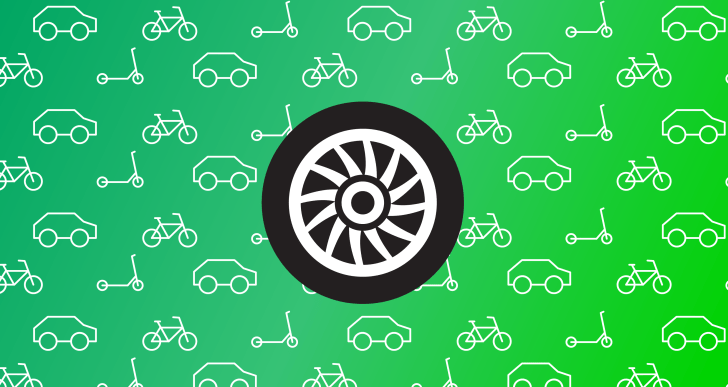EV sales are driving demand for services and startups that fulfill the new needs of drivers, charging station operators and others. Evette Ellis and Ben Schippers took to the main stage at TC Sessions: Mobility 2021 to share how their companies capitalize off the new opportunities presented by the electric transportation revolution.
Ellis is the co-founder and chief workforce officer of ChargerHelp, an on-demand EV charging station repair company. She spoke about how the company approaches hiring and training, why it engages with workforce development centers, and how training in cohorts makes economic sense. Farther down, we’ll hear from Schippers, the founder of TezLab.
Why the company works with workforce development centers
Workforce development is a government-run and -funded system to connect job seekers with employers, training and career development. There are thousands of job centers across the country, coordinated by the U.S. Department of Labor, that serve millions of Americans. Evette described why she and co-founder Kameale Terry wanted to engage with workforce development from the beginning.

Image Credits: ChargerHelp
We really, really wanted to pioneer this idea that you can work with a workforce development center, who our federal government pays lots of money to train and do all the things that you need to get a great talent source, to create that pipeline, to use those pipelines for industries outside of construction or entry-level medical, but also for tech. Tech is the biggest industry in our country and it’s really running the show right now. We wanted to make sure that underrepresented communities didn’t get left out of this shift that is clearly happening. (Timestamp: 13:54)
Training in cohorts
ChargerHelp trains and hires using a cohort model. Let’s say 20 applicants are selected for training. While only a certain number may be ultimately offered a job, the training is provided for free, and each person who completes it leaves with certifications that they can take with them for the rest of their career.
We just really looked at, what is the general formula for, what number can we add to minimum wage to make it a living wage for each state? That middle number was $30. One would need $30 to live without having two or three jobs, to be able to take care of a family. … That’s what we really want to provide. Because the work that we expect, and the training that we provide, we really want to be the best in our business. (Timestamp: 15:19)
Evette stressed that a living wage wasn’t charity.
There’s a lot of money in tech. There’s no reason why we have to pay entry level folks $15. There’s a lot of money. So we really believe that we can pay people decent and pay people well and become a very profitable and lucrative business, because that is a big plan of ours. We do want to take over the world, we do want to make a lot of money. We have our own dreams and aspirations. However, I don’t believe I have to pay someone crumbs or pennies in order to do that. (Timestamp: 16:13)
You can read the entire transcript here.
TezLab CEO and founder Ben Schippers also joined Mobility 2021 to discuss how TezLab is enabling drivers to get the most out of using and charging their electric vehicles. Schippers takes us through the potential future of Tesla’s API and other car models that may join TezLab’s app in the future.
The future of Tesla’s API, and if there will ever be a Tesla app store
Tesla vehicles allow drivers and developers to access API, opening up the possibility of mobile applications using Tesla user data. But for now, Tesla doesn’t have an app store or any other centralized system.

Image Credits: TezLab
[Tesla’s] API is what most people consider still pretty immature, but it’s developing as the cars develop. So I think as their company matures, they’ll look to Apple and Google and really sort of put a stamp on [supporting] third-party developers and see what they can bring to the table as part of the larger ecosystem for Tesla and other EVs as well. (Timestamp: 1:39)
Elon, in particular, and a couple other senior folks have hinted at [an app store] for a long, long time, and I think they sort of sidebarred it as their priority list grows. But I certainly think in the future, it’s going to be a major revenue stream for them. And I think in the interim, they’re going to view it as an opportunity to do R&D for the larger third-party network. They’ll let people build things and then over time, as it becomes more established, they’ll figure out how to monetize it similar to what Twitter had done, and even Facebook early days. (Timestamp: 2:24)
Adding more vehicle makes and models to TezLab’s platform
As of now, TezLab only works with Tesla vehicles. But Tesla is far from the only EV game in town — which has been true for as long as it’s existed (Nissan LEAF, anyone?) — but particularly as newer entrants like Rivian and legacy automakers like Ford release their EV models.
Hopefully by the end of this year, we support the Mach-E. And then once we support the Mach-E, it’ll be very easy for us to add the F-150-E just like it’s easy for us to add the Cybertruck. So once you get the manufacturer in, it’s then subsequently easier to add follow-on cars from there. (Timestamp: 5:23)
Whether OEMs will join the app game
As the OEMs and the manufacturers stabilize their APIs, it’s really going to be the next round of building for the platform. The platform is not going to be the iPhone, it’s going to be the Tesla. It’s not going to be the Google phone, it’s going to be the Mach-E. This is why Apple is going to get into building their own cars. I think it’s going to be a huge opportunity for developers to start building inside this ecosystem, especially as cars become more and more autonomous. (Timestamp: 7:06)
